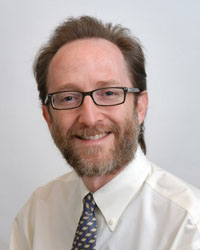At National Conference, Saitz Calls for New Approach to Treating Addiction.
Integrated care may be the “mantra of the day” in health care — but when it comes to treating addiction, the mantra may need some modifying.

That’s what Dr. Richard Saitz, chair of the Department of Community Health Sciences at BUSPH, told the National Council for Behavioral Health conference Monday, in a presentation headlined: “Chronic Care Management for Addiction: What Can We Learn from Failure?” He spoke about a study he led last fall that found — to researchers’ surprise — no differences in abstinence, addiction severity or other outcomes between patients who received coordinated chronic care management and a control group who didn’t.
The lesson? “The mantra of the day . . . is not a magic bullet,” Saitz said. “Just like other health conditions, the details matter.” Integrated care may work best when patients are motivated, when effective treatments are available, and when care is geared to specific substance-using populations, he said.
“One size doesn’t fit all” in addiction treatment, Saitz said. “Substance use disorders are not one thing.”
He called for further studies of integrating addiction treatment into medical care, citing one recent trial that found military veterans fared better when they received coordinated care.
“I remain optimistic that chronic care management will work for addiction,” he said. “I cannot accept that integrated care is not better” than a disconnected care system, in which patients with substance use problems and co-existing mental health conditions must see three or four providers in different treatment settings.
The National Council’s conference, held in Washington, DC, drew more than 4,000 attendees.